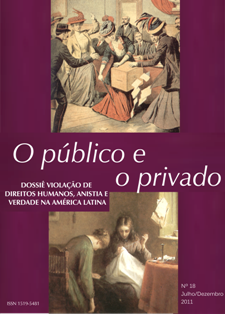Juridical pluralism and Human Rights
the sorcery trials in Mozambique
Keywords:
Mozambique, Witchcraft trials, Legal pluralism, Cultural relativism, HegemonyAbstract
Empirically based on interviews and participant observation, this article deals with sorcery accusations and trials in Mozambique, while a justice practice that highlights the limitations and perverse effects of the principles of juridical pluralism. By doing so, it underlines the key role of sorcery in the local system of domestication of uncertainty, but also the fact that such accusations and processes often violate basic rights, and are powerful instruments of social control and of the reproduction of inequality and domination relationships. Debating the illegitimacy of both the use of cultural relativism in order to support practices which oppose human rights, in one hand, and the imposition of external criteria regardless of the meanings ascribed by people to their local practices, the article suggests a criterion to deal with such cases when general rights and particular practices seems to oppose: the primacy of the dominated’s will and point of view regarding the practice in question.











